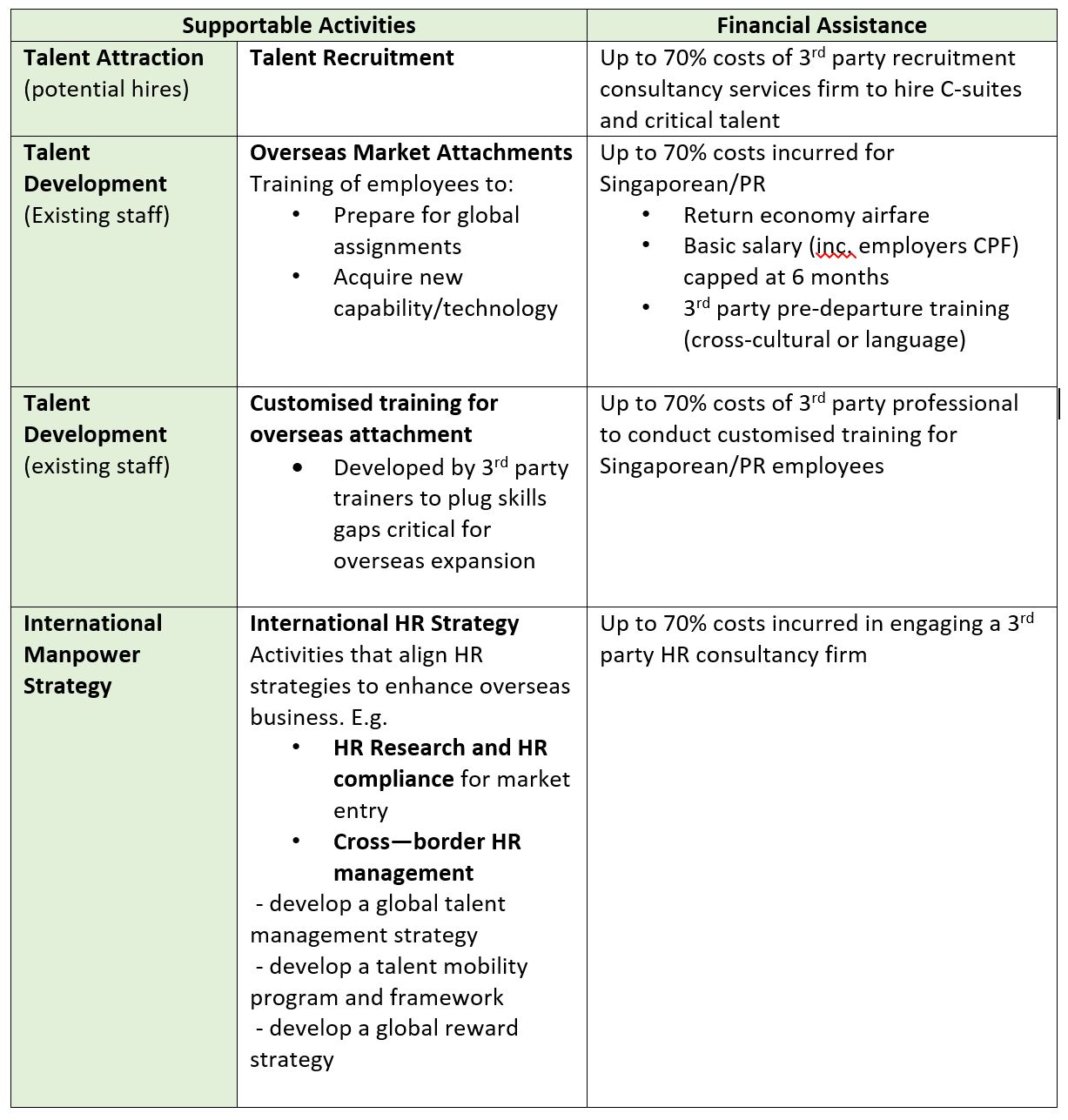Much has been written on the demand for local leadership development in Asia and the shift in focus from importing foreign talent to grooming local employees into leadership roles. There are a number of drivers behind this shift, including the need for a more sustainable cost effective approach; as well as the rise of the Asian economy and the need for Asian leaders who understand the culture and the market place. There are also regulatory drivers as well, with many governments increasing scrutiny on their visa and immigration requirements, demanding stronger justification on why a company needs to import foreign talent and why a local cannot fill the role.
In Singapore, the government has taken a pragmatic approach. Since 2000 Singapore has witnessed a huge influx of foreign migration, with non-resident foreigners rising from 19 to 25% between 2000 and 2010. This in turn resulted in discontent with the local population complaining of losing jobs to foreigners, overcrowding and weakening of the Singapore identity. In 2013 the Ministry of Manpower (MOM) announced new rules, known as the Fair Consideration Framework, which require employers to consider Singaporeans fairly before hiring Employment Pass (EP) holders. From 2014 companies applying for new employment passes for foreigners must advertise the vacancy on a new online jobs bank for at least 14 days to allow qualified Singaporeans to apply for the role. Exceptions exist for small firms with 25 or fewer employees, and jobs which pay a fixed monthly salary of $12,000 and above. MOM have also started scrutinising companies that rely too heavily on foreign talent and have placed many companies, including large MNCs on a watch list, calling companies in to discuss their long term talent strategy and local employee development programs.
Although the Singapore government has tightened the rules around migration, they have also introduced a variety of programs and initiatives to help companies develop their local talent pool and through grants and reimbursement schemes encourage companies to invest in local leadership development programs.
IE Singapore has been leading this cause through its Global Company Partnership (GCP) scheme, as it looks to help Singaporean companies expand overseas. There are a number of areas of support but we will focus on two of them – Manpower Development and Double Tax Deduction for Internationalisation (DTDi)
Manpower Development
The financial support falling under manpower development is available to companies with a global HQ anchored in Singapore and annual sales of over S$500,000. The table below illustrates some of the financial assistance available:
Double Tax Deduction for Internationalisation (DTDi)
Whereas the financial support above is for Singapore HQ companies, the DTDi is available for all Singapore registered companies and provides 200% tax deduction on eligible expenses for supported market expansion and investment development activities. The most relevant of which is for costs incurred for employees overseas postings. This scheme was further enhanced in the 2015 budget and now provides for double tax deduction on up to 5 employees’ salaries per year. Qualifying salary expenses capped at S$15,000 per month per employee. The employee should be a Singaporean or Permanent Resident (PR), posting should last at least one year and provide the employee with opportunities to gain new skillsets. Applications are subject to IE Singapore’s approval and a number of conditions apply.
Industry Programs
The Monetary Authority of Singapore (MAS) was an early pioneer in encouraging companies within the finance industry to invest in developing local talent. Three years ago it set up the Financial Sector Development Fund (FSDF) to facilitate the development and enhancement of talent and other infrastructure for Singapore’s financial centre. There are a number of programs under this fund but the two I will focus on are The International Posting Programme (iPOST) and The Finance Associate Management Scheme (FAMS).
iPost
The International Posting Programme (iPOST) supports the posting of high potential Singaporeans for overseas secondments, through which the intent is that they return with managerial skills, a deep understanding of global best practices and strong business networks. Under the iPOST, the FSDF will defray part of the costs incurred by financial institutions in sending Singapore citizen staff on global and regional attachments or postings. Supportable items include airfare, accommodation and cost of living/per diem allowance. Funding support is up to 50% of qualifying costs.
FAMS
The Finance Associate Management Scheme (FAMS) is a leadership development initiative supported by the FSDF. Its objective is to increase opportunities for Singaporeans to be groomed through structured programmes that can lead on to future specialist and management leadership roles in various segments of the industry. Under the FAMS, the FSDF will defray part of the costs incurred by financial institutions in increasing their intake of Singaporean citizen staff and training them under their structured management/functional programmes. Eligibility is limited to Singapore citizens employed at Singapore based financial institutions – (i) new entrants who are fresh graduates or cross-sector convertees and (ii) high-potential incumbents who are being groomed into specialist/management leadership roles. Financial support is available for salary and training costs of incremental Singaporean staff entering the program, training costs for high-potential incumbents as well as international assignment costs (similar to the iPOST program).
As with all these programs a formal application and approval process must be followed, demonstrating a documented program including training, career development plans and coaching and mentoring support. The hope is that with the additional financial support available companies will be more inclined to recruit and develop Singaporean employees and rely less on importing foreign talent as a quick fix solution.
To find out more about these and other programs currently available to companies in Singapore as well as to discuss how to build the right developmental programs to increase your pipeline of local leadership talent, please contact seanc@talentmobilityasia.com. Funding support of up to 70% may be available for consultancy work related to global talent management strategy.







